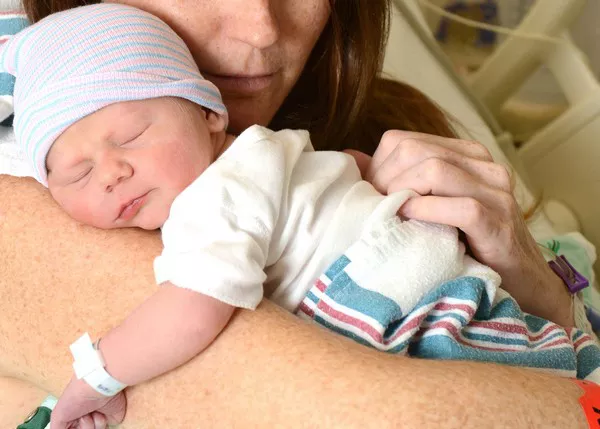Burping is a common practice after feeding a newborn, as it helps to release trapped air from their tiny stomachs, reducing discomfort and the likelihood of spitting up. However, not all babies burp easily or consistently. If you find yourself with a newborn who won’t burp after feeding, it can be concerning. In this article, we will explore the reasons why some newborns have difficulty burping, offer potential solutions to help facilitate burping, and provide guidance for parents in such situations.
Understanding the Importance of Burping:
Burping plays a crucial role in preventing gas buildup in a newborn’s stomach. Swallowed air during feeding can cause discomfort, bloating, and even irritability. By burping your baby, you can help alleviate these symptoms and ensure they are more comfortable after eating. It’s important to note that not all babies require burping, as some naturally release air without assistance. However, for those who do, it is essential to address the issue if your newborn is not burping.
Reasons Why Your Newborn Might Not Burp:
- Timing and Feeding Technique:
It’s important to allow enough time for your baby to burp. Sometimes, babies may not burp if they are not fed for a sufficient duration. Additionally, the feeding technique can influence the amount of air swallowed. If your baby is not latched properly or is feeding too quickly, it may hinder their ability to burp.
- Swallowing Less Air:
Some babies are more efficient at feeding and naturally swallow less air during the process. These babies may not require frequent burping sessions as their digestion is more efficient, resulting in less air accumulation.
- Relaxed Lower Esophageal Sphincter:
The lower esophageal sphincter, a muscle that prevents stomach contents from flowing back into the esophagus, may be relaxed in some newborns. This can result in less air being trapped in the stomach, reducing the need for burping.
Tips and Solutions for Burping Difficulties:
- Patience and Persistence:
Be patient and persistent in your attempts to burp your baby. Some newborns may take longer to release trapped air. Experiment with different positions and techniques to find what works best for your little one.
- Upright Position:
Place your baby in an upright position, with their head supported against your shoulder or chest. Gently pat or rub their back, starting from the lower back and moving upward, to help release trapped air.
- Over-the-Shoulder Technique:
Drape your baby over your shoulder, facing outward, and gently pat or rub their back. This position can apply gentle pressure to the stomach, encouraging burping.
- Sitting Position:
Sit your baby on your lap, supporting their head and chest with one hand, while using the other hand to pat or rub their back. This position can also assist in releasing trapped air.
- Gentle Movement:
Gentle movements, such as rocking or swaying, can help stimulate burping. Experiment with different motions to find what works best for your baby.
- Modify Feeding Technique:
If your baby consistently has trouble burping, try adjusting their feeding technique. Ensure they are properly latched, and if bottle-feeding, choose a nipple with a slower flow to minimize the intake of air.
- Pause and Burp:
If your baby is feeding for an extended period, pause midway to burp them before continuing with the feeding. This can help prevent excessive air swallowing.
- Gas-Relieving Techniques
Some parents find that gentle tummy massages or bicycle leg movements can help relieve gas and promote burping. Always perform these techniques with care and observe your baby’s comfort level.
- Consult Your Pediatrician:
If your baby consistently experiences discomfort, excessive gas, or shows signs of reflux, it is important to consult your pediatrician. They can evaluate your baby’s condition and provide personalized advice or recommend alternative solutions.
Conclusion:
Having a newborn who won’t burp after feeding can be frustrating for parents, but it is not uncommon. Remember that each baby is unique, and their burping needs may vary. By understanding the reasons behind burping difficulties and implementing the tips and solutions outlined in this article, you can increase the likelihood of helping your newborn release trapped air and reduce discomfort. Always be patient, persistent, and consult your pediatrician if you have ongoing concerns about your baby’s well-being.


